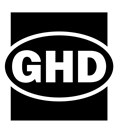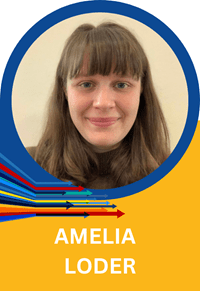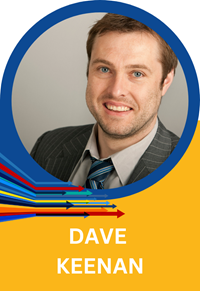A Brighter, Cleaner Transport Future
Thursday 14 September 2023 10:45am-12:00pm
Session Outline
Session Moderator – Derrick Hitchins, Chief Technical Principal - Transport Planning & Advisory | SMEC
- Tim Sullivan, Principal Transport Planner - Net Zero | WSP - Decarbonising Transport – Lessons from the UK
- Amelia Loder, A/Senior Manager Sustainability – SSTOM | Sydney Metro - Western Sydney Airport: Creating a Carbon Neutral, ecologically restored and climate resilient Metro
- Dr Ian Jeffreys, Principal Economic and Affordability Specialist | RACQ - Transport Tax Reform - Promoting and Supporting Equitable, Sustainable and Decarbonised Transport
- Dave Keenan, Regional Head - Business Development - Australia, New Zealand | Aimsun - Next Generation Environmental Traffic Management - Case Studies from the UK and Germany
Tim Sullivan - Principal Transport Planner - Net Zero | WSP
Tim Sullivan
Principal Transport Planner - Net Zero | WSP
Tim Sullivan is Principal Transport Planner, Net Zero based in WSP’s Sydney office. Originally from the UK but living in Australia since 2011, Tim has firsthand experience of the two countries’ differing approaches to climate change adaptation and mitigation. For more than 15 years Tim has been a consistent champion of sustainable and inclusive transport across a range of public and private sector roles. His work experience ranges from policy and program development at Surrey County Council to major infrastructure projects and includes a recent two-year stint in the Regional Planning team at Transport for NSW.
In his current role at WSP Tim splits his time between “future mobility”, which includes the electric vehicle transition, and “traditional mobility” which covers many other aspects of transport decarbonisation, including movement and place studies, public transport planning and active transport strategy through to design.
Decarbonising Transport – Lessons from the UK
Australia has a legislated emissions reduction target of 43% by 2030 and net zero by 2050.
Transport is the second largest source of carbon emissions nationally in Australia, at 18% and growing, so to reach net zero by 2050, there is a lot of work to do.
This presentation will focus on sharing insights from the UK, to support our sector in reaching net zero, covering:
- The approach to carbon budgets in the UK flowing from the Paris Climate Agreement.
- Insights and lessons from developing Highways England’s Net Zero Highways Strategy, Plan and key priorities
- Spotlight on the UK Department of Transport’s emerging Quantified Carbon Reduction Guidance (QCRG) for Local Transport Plans
- Selected case studies to demonstrate how UK policy on decarbonising transport has influenced investment decisions at different levels of government.
- Learnings for the Australian transport context.
Amelia Loder - A/Senior Manager Sustainability | Sydney Metro
Amelia Loder
A/Senior Manager Sustainability | Sydney Metro
Amelia Loder is the A/Senior Manager Sustainability on the Sydney Metro – Western Sydney Airport (SM-WSA) Project. She currently leads the SM-WSA sustainability team, overseeing the development and implementation of strategies and requirements across all aspects of sustainability from climate resilience to materials management and efficient design. Amelia has also worked in the energy and carbon consulting and climate risk space, looking at net zero pathways and assessing the impacts of climate change. Prior to that, she gained experience in the design and construction industry as a mechanical building services engineer. She is passionate about contributing in a practical way to making the world a better place.
Sydney Metro - Western Sydney Airport: Creating a Carbon Neutral, ecologically restored and climate resilient Metro
Sydney Metro is Australia’s biggest public transport project, providing a new generation of fast, safe and reliable metro services. Services commenced in the city’s north west in 2019 and metro rail is being extended through the CBD and to the south west. We are now embarking on delivering Sydney Metro West, linking Greater Parramatta with the Sydney CBD and Sydney Metro - Western Sydney Airport will service Greater Western Sydney and the airport, which is the focus of this presentation.
As the transport spine of the new Western Parkland City, we recognised the need to implement local and global best practice sustainability to ensure the next generation of Sydney’s public transport is efficient and climate resilient. Our Sustainability Plan sets out several key ambitions for the project, ranging from certification for carbon neutrality to a vision of ecological restoration for the corridor and to ensuring climate change projections are adequately included within the design.
Our presentation will detail the steps required to implement our Australia-first commitment to obtaining Climate Active Carbon Neutral Service Certification for the project. This includes how we are reducing and tracking carbon through to our offsetting plans. We will examine our vision for ecological restoration of Cumberland Plan vegetation along the rail corridor. This includes our achievements of undertaking a native seed collection program run by a local Aboriginal social enterprise and the inclusion of restoration specialists in the planning. Lastly, we will touch on how we ensure the project is designing adequately for the future through use of novel local-specific climate change projections.
By sharing insights into the implementation of our commitments and our lessons learnt, we aim to enable industry to collectively move one step closer to providing sustainable and efficient transport which overcomes the challenges created by the Climate Crisis.
Dr Ian Jeffreys - Principal Economic and Affordability Specialist | RACQ
Dr Ian Jeffreys
Principal Economic and Affordability Specialist | RACQ
Dr Ian Jeffreys is RACQ’s Principal Economic and Affordability Specialist. He holds s a PhD in Natural Resource Management and Economics from the University of Queensland. He has over 20 years of experience in public policy, advocacy, development and research focusing on fuels and energy, transport, agri-environment and sustainability. Experience includes government, academia and corporate sectors.
Transport Tax Reform - Promoting and Supporting Equitable, Sustainable and Decarbonised Transport
All transport is good – being able to move freely and affordably adds to the social, cultural and economic health of Australia. In this presentation I will discuss need to redesign the transport tax system for light vehicles. We should tax the externalities, the dis-benefits, not the benefits. The tax system should support equitable, sustainable and decarbonised transport. While maintaining current tax revenue, a new system should limit the tax burden on those with limited transport options.
A new system needs to be more than a simple “per km” charge, often only applied to EVs. Such a system will disincentivise uptake of EVs and disadvantage regional and remote drivers. Or, when applied to all vehicles would be less progressive than the current fuel excise, as it would not capture fuel efficiency.
Ideally a new system could be modulated by a set of premiums and discounts depending on the vehicle attributes, geographic and temporal measures – the “what, where and when” you drive. Specifically, the “what” should capture your vehicle’s CO2 emission, noxious emissions, road damage and road safety. The “where” and “when” attributes should be subject to further community discussion. The “where” could capture traffic conditions and road location and the “when” could capture the time of day, peak hour or off-peak.
The administration of charge needs to be simple, ideally using a technology solution to calculate the amount owed. But it also needs to be designed in a way to maintain the privacy of individual drivers.
Dave Keenan - Regional Head - Business Development - Australia, New Zealand | Aimsun
Dave Keenan
Regional Head - Business Development - Australia, New Zealand | Aimsun
Dave is Regional Head for Business Development at Aimsun. He is a chartered Civil Engineer of 25 years experience with a focus in transportation network modelling, and particularly on the meaningful and pragmatic project delivery aspects as modelling can provide.
After 17 years in the engineering and planning consultancy industry delivering projects in the UK, Middle East, Asia, Australia and New Zealand, including on secondments to public sector bodies in a number of countries, Dave joined Aimsun in 2015 to lead in developing client and business positioning aspects across the Asia-Pacific region.
He is a founder of and Immediate Past National Chair of the AITPM’s Transport Modelling Network. In June 2022 he became the fifth person to be awarded with the Modelling World UK Conference’s Masters of Modelling – Lifetime Achievement Award, in recognition of his contribution to the transportation modelling discipline globally in both a professional and in a volunteer/institution sense.
Next Generation Environmental Traffic Management - Case Studies from the UK and Germany
The topic looks at new global paradigms and software implementation methods at the leading edge of our professional challenge to better manage the carbon footprint of transportation impacts via tailpipe emissions, including for improvements to air quality via real-time plus immediate-future air dispersion prediction. Technical methods are outlined and two case studies are presented as a means of demonstrating the potential outcome results of applying such technological approaches:
- From the award-winning NEVFMA (Network Emissions Vehicle Flow Management Adjustment) project - The UK’s first fully operational, county-wide predictive model for both the local and strategic road network in Oxfordshire; a project led by Aimsun in association with delivery partners EarthSense, Yunex Traffic and Oxfordshire County Council (on behalf of Highways England).
- Wiesbaden in Germany - Hesse’s state capital of Wiesbaden commissioned Siemens Mobility to implement its “Digitalization of Traffic” (DIGI-V) project, which is based from the city’s Green City Plan – Masterplan WI-Connect. Wiesbaden has successfully lowered traffic-related nitrogen oxide emissions with an extensive air pollution control package covering all areas of mobility. To achieve this reduction, extensive environmental & traffic data is recorded, analysed and processed in real time.
The models predict not only traffic but also emissions, with a real-time, traffic-linked pollution dispersion model. The simulation of predicted NO2 pollution levels from EarthSense’s MappAir dispersion model integrated with Aimsun Live allows real-time proactive and reactive traffic management to tackle emissions and congestion. The system recommends three scenarios with changes to signal timings, traffic restrictions or other network changes for traffic managers to choose from, giving the optimal mitigation strategy to reduce congestion and emissions. Project indications show a saving in peak-period emissions of up to 22%.




























